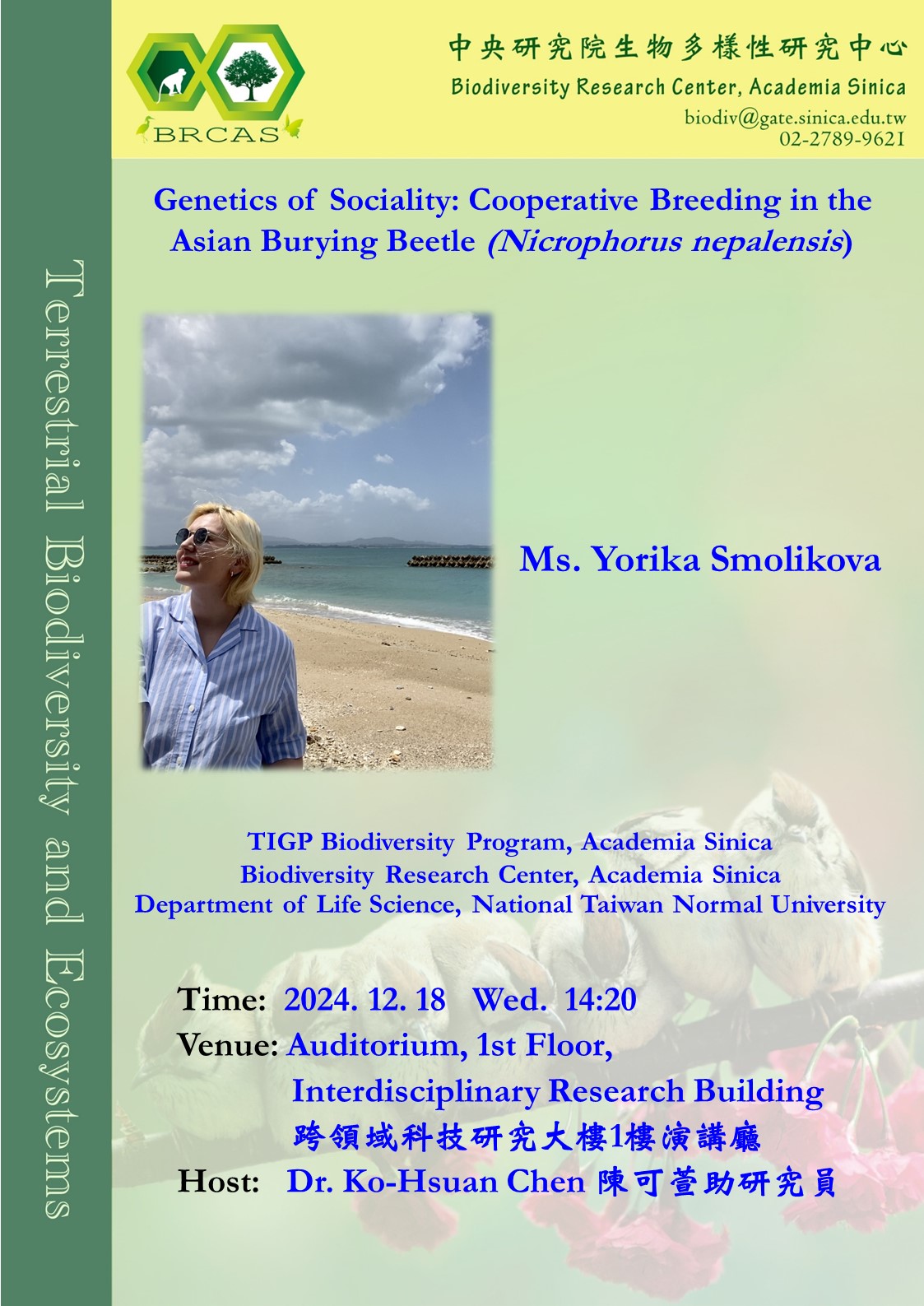- 演講或講座
- 生物多樣性研究中心
- 地點
跨領域科技研究大樓1樓演講廳
- 演講人姓名
Ms. Yorika Smolikova (TIGP, Academia Sinica)
- 活動狀態
確定
- 活動網址
Abstract
Social cooperation, pivotal for group living, underscores the balance between individual fitness and collective prosperity. Yet, the genetic mechanism of social behaviours remains largely unexplored. This study focuses on facultatively cooperative breeding in the Asian burying beetle, Nicrophorus nepalensis, via hybridisation and backcrossing of two distinct populations in Taiwan. The genetic distinction between those is a 13mb inversion on the 3rd chromosome.
Behavioural experiments showed that one population has high levels of female cooperation, triggered by inter-specific competition, while the other one has not. Interestingly, the male cooperation showed the exact opposite pattern. This highlights a novel aspect of sexual role differentiation in parental care and challenge prevailing assumptions that female behaviour primarily determines cooperativeness.
This facultative sex role reversal further indicates substantial local adaptation and behavioural plasticity. The hybrid population shows intermediate cooperation levels of both sexes, which highlights major-effect genes' influence and the role of the chromosomal inversion, suggesting a heterozygous hybrid population.
Preliminary results from hormone analyses revealed that juvenile hormone (JH) significantly influences cooperative behavior, with higher JH levels correlating with increased cooperation. Future transcriptomic analyses will uncover the specific genetic mechanism underlying the cooperation.









 首頁
首頁

